Taimali Township (太麻里) is about 15km south of Jhihben Township (知本) in Taitung County, a glorious ride along the electric blue Pacific coastline. Having spent several days scouting out the upper reaches of the Jhihben River gorge for possible camera trap locations for Formosan clouded leopards (Neofelis nebulosa), a friend and I decided to explore the next river drainage to the south.
The Taimali River gorge is yet another remote and relatively unknown wilderness area of Taitung County that has likely never been properly surveyed for wildlife, and this is certainly the second place that I plan to search for clouded leopards, once the cameras come and permission is granted. There are no signs to guide the curious into the Taimali River gorge; one needs a sense of direction and some luck.
But my sense of direction didn’t fail me. The narrow road shrank, becoming potholed and overhung with foliage, then turned to stone and then to dust. I had to ask my friend to hop off while I navigated the steep dirt path down to the rocky riverbed, where I parked and locked the scooter.
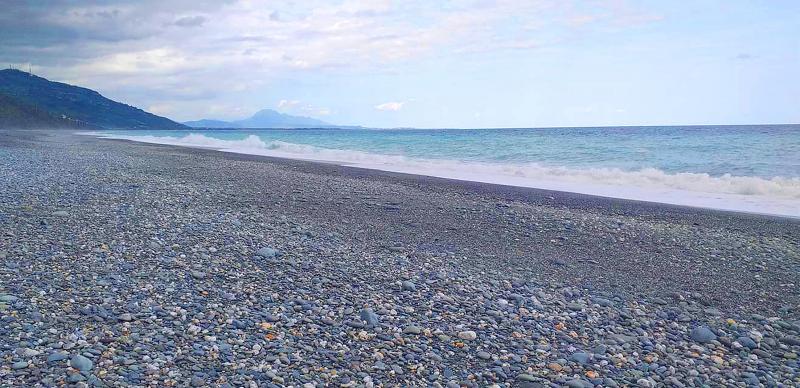
Photo: Gregory McCann
PARADISE FOUND
Suddenly the vista opened up. A deep and swift river cut a meandering channel through the wide valley, and this we had to cross numerous times. Thick, gorgeous forest lined both sides of the valley, and though we noticed the faint outline of jeep tracks, one got the sense that this place was rarely visited by people. Hiking upriver, a high, goldish mountain loomed invitingly in the distance. Yes, we could envision clouded leopards here.
We found scat belonging, most likely, to yellow-throated marten, and macaques crashed around in the canopy above us. And then, in the distance, dust began to kick up. Was it a black bear or clouded leopard fleeing evil humans? No, it was a jeep, coming straight toward us. How that vehicle could cross the deep channels without flooding the engine, I had no idea, but we waited on the side where they apparently had to cross.
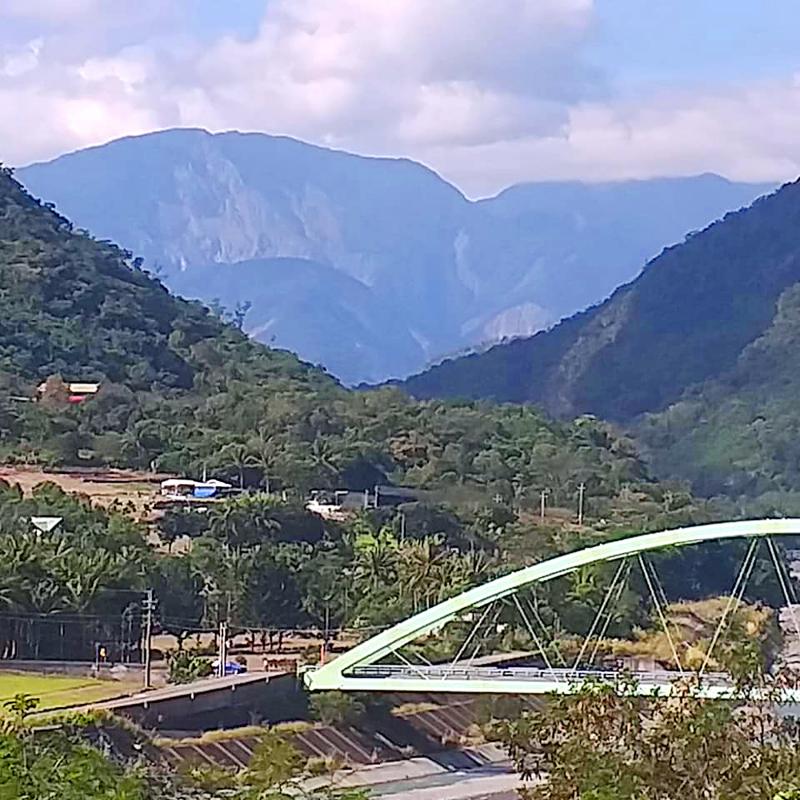
Photo: Gregory McCann
They made it across, and stopped. I spoke with the driver and my friend spoke with the passenger. A new double-barreled shotgun rested in the back seat. There was little doubt in my mind that they had been out in the bush setting or checking snare traps, that they were hardened poachers and that they had butchered a few black bears in their time.
Wildlife protection laws seem to be casually enforced in these parts. Poachers enter valleys such as these at night and, using spotlights, shoot at anything with glowing eyes. Flying squirrels and masked palm civets would be among their main quarry.
Taiwan doesn’t offer similar levels of support for conservation as can be found in other countries. To provide some perspective, NGO’s operating in Cambodia removed over 250,000 snares during a five-year period last decade, thanks to the tireless efforts of Wildlife Alliance, WWF and WCS.
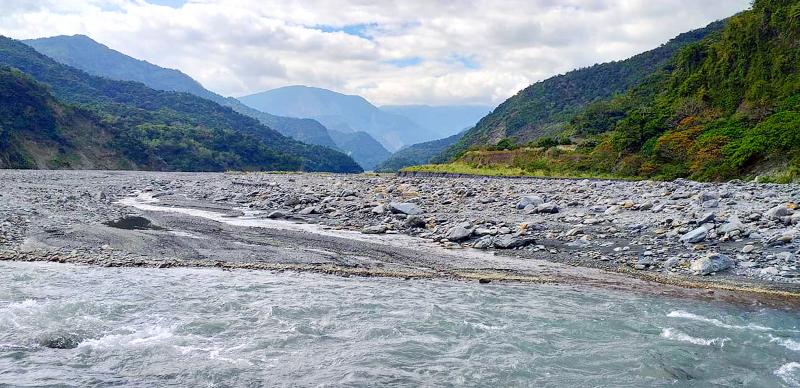
Photo: Gregory McCann
People will say that poaching is difficult to control in such areas, but I think the opposite is true. There is just one way in, and one way out. Police could easily set up an ambush on that narrow road, and nab transgressors. As it stands, it appears that poachers can operate with impunity here, depleting a gorgeous ecosystem of its wildlife.
The passenger refused to look at me, possibly because I was wearing a shirt with a clouded leopard on it and they might have assumed we were conservationists working for an NGO, and possibly because I was hiking in my underwear — I’d forgotten my shorts back at the guesthouse and didn’t want to get my jeans wet. The gentleman who I was engaged in conversation with had a difficult time maintaining eye contact. Did this area still harbor clouded leopards? He looked blankly at the steering wheel while chewing betel nut. Black bears? Yes, in all the surrounding hills, he replied.
I asked for a cigarette and he gave me one. They informed us that there was an undeveloped hot spring a four-hour hike upriver, and soon after they left us.
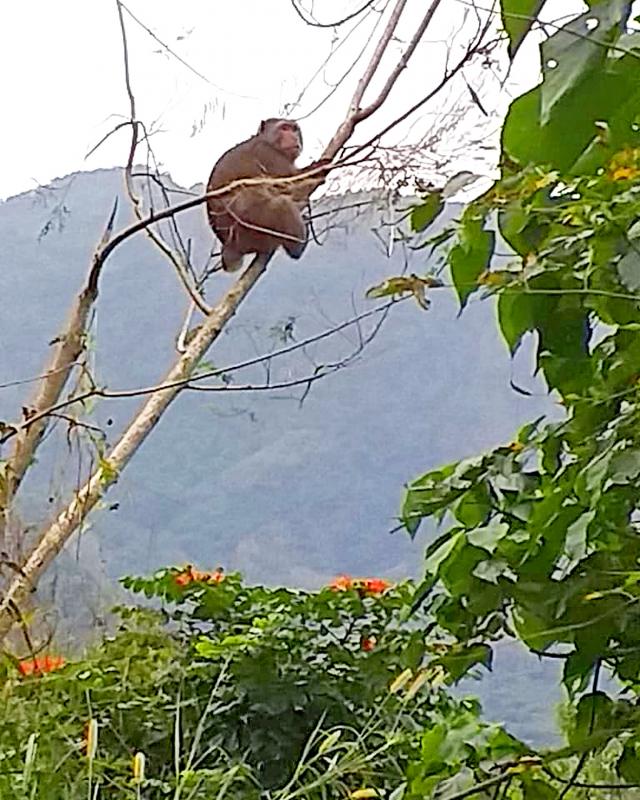
Photo: Gregory McCann
UNPROTECTED RIVER
We continued to hike upriver, making our way up the scorching valley. There was no way we would make it to the huge mountain in the distance before nightfall, and we didn’t have our tent with us.
Like the Jhihben River gorge to the north, the Taimali River valley enjoys no official protected status. The difficulty of access, its relative remoteness and the health of the forest and river mean that Taiwan’s complete mammal community likely resides here, everything from yellow-throated martens to pangolins to black bears and — if they still exist — clouded leopards. And yet virtually no one knows about this place; or, perhaps it should be said — the wrong people know about it.
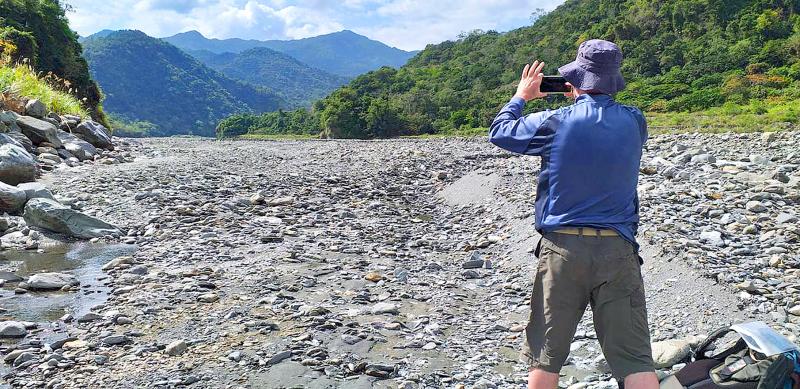
Photo: Gregory McCann
We decided to head back, vowing to return for a multi-day hike to scout out those wild hot springs and a possible route to the high mountain calling in the distance. I worried that perhaps the men in the jeep would sabotage my rented scooter for some reason or other, but they left it unmolested.
“Honor among thieves,” my friend quipped.
No doubt a dozen camera traps or so set in the right places would easily prove that the Taimali Gorge is a great wildlife refuge, and possibly home to the clouded leopard. And like the other valleys we explored in this overlooked region, it is need of urgent protection. We’ll be back.

On a hillside overlooking Taichung are the remains of a village that never was. Half-formed houses abandoned by investors are slowly succumbing to the elements. Empty, save for the occasional explorer. Taiwan is full of these places. Factories, malls, hospitals, amusement parks, breweries, housing — all facing an unplanned but inevitable obsolescence. Urbex, short for urban exploration, is the practice of exploring and often photographing abandoned and derelict buildings. Many urban explorers choose not to disclose the locations of the sites, as a way of preserving the structures and preventing vandalism or looting. For artist and professor at NTNU and Taipei

March 10 to March 16 Although it failed to become popular, March of the Black Cats (烏貓進行曲) was the first Taiwanese record to have “pop song” printed on the label. Released in March 1929 under Eagle Records, a subsidiary of the Japanese-owned Columbia Records, the Hoklo (commonly known as Taiwanese) lyrics followed the traditional seven characters per verse of Taiwanese opera, but the instrumentation was Western, performed by Eagle’s in-house orchestra. The singer was entertainer Chiu-chan (秋蟾). In fact, a cover of a Xiamen folk song by Chiu-chan released around the same time, Plum Widow Missing Her Husband (雪梅思君), enjoyed more

Last week Elbridge Colby, US President Donald Trump’s nominee for under secretary of defense for policy, a key advisory position, said in his Senate confirmation hearing that Taiwan defense spending should be 10 percent of GDP “at least something in that ballpark, really focused on their defense.” He added: “So we need to properly incentivize them.” Much commentary focused on the 10 percent figure, and rightly so. Colby is not wrong in one respect — Taiwan does need to spend more. But the steady escalation in the proportion of GDP from 3 percent to 5 percent to 10 percent that advocates

From insomniacs to party-goers, doting couples, tired paramedics and Johannesburg’s golden youth, The Pantry, a petrol station doubling as a gourmet deli, has become unmissable on the nightlife scene of South Africa’s biggest city. Open 24 hours a day, the establishment which opened three years ago is a haven for revelers looking for a midnight snack to sober up after the bars and nightclubs close at 2am or 5am. “Believe me, we see it all here,” sighs a cashier. Before the curtains open on Johannesburg’s infamous party scene, the evening gets off to a gentle start. On a Friday at around 6pm,